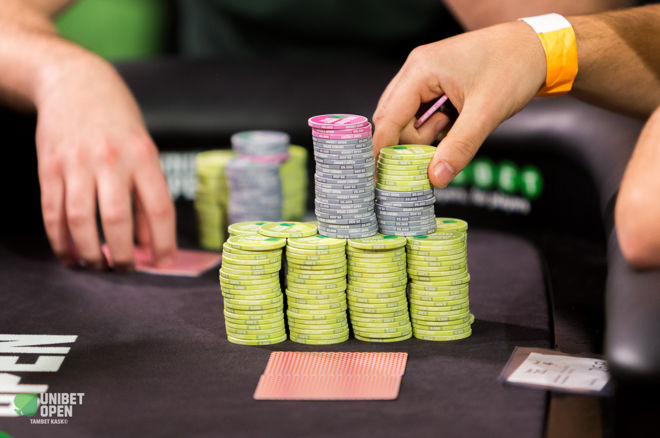Stealing Blinds
Stealing Blinds Rating: 3,0/5 3961 votes
Each successful blind steal nets you a profit of 1.5bb. Two successful blind steals over 100 hands is the difference between breaking even and playing profitable poker. Blind stealing is especially important at the low stakes, where players do not always defend their blinds properly. This means they fold either too often or not enough against. If the blind steal works two out of three times, you win $6 and lose $5, coming out a buck ahead. That said, blind stealing in cash games usually isn’t as smart an idea as in tournaments, especially in deeper-stacked cash games where the amount of the blinds is small compared to the total stacks. Learn to Play Poker in no time: poker tutorial is a great way to learn the card g.
Steal - To win the pot or the blinds by bluffing.Sometimes, a player will bet, not based upon the content of their hand, but because they believe that the other players in the hand cannot call. This is called “stealing.” A player may attempt to steal a pot by betting into or raising another player whom they believe is weak. If they are correct in their read, the other player will muck before the showdown, and the player who is stealing will win the pot without ever having to show.
Stealing Blinds In Cash Games
In addition to stealing pots, players may also attempt to steal the blinds. This is often done by players in middle to late position when there has not been any action preflop. The blind stealer hopes that one of two outcomes will occur. The first hope is that the blinds will not defend against a raise, so the blind stealer will win an uncontested pot. If instead the blinds defend, the blind stealer hopes that they will be able to outflop or outplay the blind defenders and manufacture a winning hand.

The better your position, the more it makes sense to try to steal the blinds, and the less powerful hand you need to attempt it. Most commonly, players will attempt to steal from the cutoff position, which is the position immediately to the right of the button, or on the button itself. Since the cutoff is slightly worse position than the button, you will typically need a slightly better hand than you would need to have for a button steal. This is because your risk is significantly greater when you steal from the cutoff than it is when you steal from the button. When you steal from the button, you only have two opponents acting after you before the flop, the small blind and the big blind. Both if these players will have to act before you after the flop, and you will have position on them throughout the course of the hand. On the other hand, when you steal from the cutoff, you have three players to act after you before the flop instead of two, increasing the chance you will smack into a monster or be played back at. In addition to the two blinds, you also have to concern yourself with the actions of the button, who will have position on you throughout the hand if he chooses to play.
Most players have starting hand requirements, meaning that they will not play a hand unless it meets a minimum standard. These requirements can be adjusted to take into account variables like your position, how well your opponents play, and their propensity to defend their blinds. Similarly, many players have stealing requirements, and will not attempt to steal unless their hand meets a certain standard. When a player steals with a very weak hand, which is unlikely to be the best hand, it is called a “pure steal.” A player may attempt a pure steal if they believe that their opponent is soft, weak, or unlikely to defend.
Tournament play is often characterized by a tighter, more cautious brand of poker than occurs in a ring game. This makes stealing an integral part of tournament play. Since players are generally less likely to defend their blinds in a tournament, you should be more inclined to steal. But you also have to be cautious, because an ill advised or poorly timed steal attempt can cost you your entire stack. If you are going to have success in poker tournaments, there will be moments where you will need to build your stack by stealing, and moments where you absolutely should not risk it. A major consideration is leverage. If you steal when you have your opponent outchipped, it is more dangerous for him to defend than it would be if he had you outchipped. This is why the big stacks tend to beat up on the short stacks in a tournament. Often, when you have a big stack, it makes sense to steal with a rag hand, because you know that your opponent is not likely to risk their entire tournament by calling with anything less than a super premium hand.
Usage: Stole the blinds, Stealing The Pot
Previous Poker Term: Stand Pat
Stealing Blinds Texas Hold Em
Stealing The Blinds
